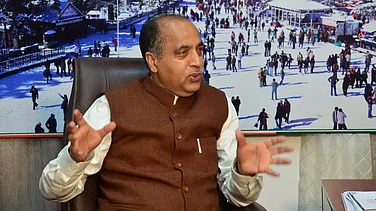In a recent order, Justice Divyesh Joshi of the Gujarat High Court emphasized that a rape is a rape, even within a marital relationship, highlighting the imperative need to shatter the silence surrounding sexual violence against women in India.
Joshi acknowledged that the actual incidence of violence against women in India may be significantly higher than reported data suggests. He expressed concern that women continue to face hostility and endure environments where they are subjected to violence.
The court condemned societal attitudes that downplay certain behaviours, such as stalking, eve-teasing, verbal and physical assault, and harassment, as "minor" offences. These actions are not only trivialized and normalized but also romanticized and promoted in popular culture, including cinema.
The order addressed the damaging impact of attitudes that view sexual crimes with a dismissive "boys will be boys" perspective, emphasizing that such attitudes have a lasting and pernicious effect on survivors.
The court made these observations while rejecting the regular bail plea of a woman involved in a case where her husband and son raped and filmed her daughter-in-law, subjecting her to cruelty and criminal intimidation. The explicit videos were then posted on pornography sites to earn money.
"In most cases of assault or rape on a woman, the usual practice is that if the man is the husband, performing the very same acts as that of another man, he is exempted. In my considered view, the same cannot be countenanced. A man is a man; an act is an act; rape is a rape, be it performed by a man, the 'husband'," the court emphasized.
The order highlighted the constitutional principle of treating women as equals to men and viewing marriage as an association of equals.
Addressing gender violence, the court noted that it is often unseen and shrouded in a culture of silence. The causes and factors contributing to violence against women include unequal power dynamics, cultural and social norms, economic dependence, poverty, and alcohol consumption.
The court stressed that the silence surrounding violence against women in India needs to be broken, asserting that men, perhaps more than women, have a duty and role to play in averting and combating violence against women.
Additionally, the order pointed out that marital rape is illegal in various countries, including 50 American states, three Australian states, New Zealand, Canada, Israel, France, Sweden, Denmark, Norway, the Soviet Union, Poland, Czechoslovakia, and the United Kingdom, which abolished the exception given to husbands.
The case details revealed that the victim's husband, father-in-law, and mother-in-law were arrested under various sections of the Indian Penal Code, including rape, gang rape, cruelty, criminal intimidation, and sexual harassment. The family's actions were allegedly driven by financial desperation to prevent the sale of their hotel by business partners.
The court noted that the applicant, the mother-in-law, was aware of the illegal and shameful acts but failed to prevent her husband and son from committing them, playing an equal role in the crime.


















.png?w=200&auto=format%2Ccompress&fit=max)







